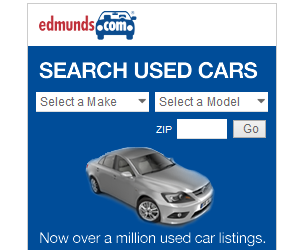What you need to know about a Vehicle History Report?
Valerie Raskovic

A Vehicle History Report (VHR) is a crucial tool for anyone considering purchasing a used vehicle. It provides valuable insight into a vehicle's past, helping buyers make informed decisions and avoid potential pitfalls. Here's what you need to know about a vehicle history report:
- Accident History: A VHR typically includes information about any reported accidents or damage the vehicle has sustained. By running a simple vin check you can uncover not just if the vehicle was previously involved in an accident; you may also uncover invaluable details related to the accident, such as:
- Type of accident
- Accident severity
- Airbag deployment status
- Accident-related total loss claims
- Damage location on the vehicle
- Damage photos
- Insurance claim-related details
- And more…
- Title History: A vehicle title is a valuable document that serves as proof of vehicle ownership. This document contains essential information about the vehicle and it is issued by the state's Department of Motor Vehicles (DMV) or equivalent agency.
A title brand may be issued through the process of a total loss claim.
A clean title absent of any title brands is an indication that the vehicle has not experienced any recorded severe damage such as a serious accident/collision, flood, lemon buy-back, vandalism, theft, Mileage roll-back and more...
Generally, the term "branded" indicates that the title bears a specific designation based on the vehicle's history as it relates to some catastrophic event prompting the insurance company to determine the vehicle to be a total loss. Some examples of branded titles include salvage titles, rebuilt titles, flood titles, lemon titles, and more…
- Sale & Lien Check: A VHR may include valuable sale history information such as transaction dates, amounts and sale locations, as well as some additional details. It is vital to always check if a vehicle has a preexisting lien before finalizing a purchase. A lien indicates that there is a legal claim on the vehicle, often due to an outstanding loan or unpaid debt. Failing to identify a lien prior to purchase can result in complications, such as the inability to transfer legal ownership or unexpected financial obligations. By conducting a lien search as part of the vehicle inspection process, buyers can ensure that they are entering into a transaction with full transparency and avoid potential legal and financial issues down the road. While a VHR can serve as a valuable tool, it should not be solely relied upon for lien checks. Lien data reported to the company compiling the VHR may be delayed and could lack relevant information. Therefore, it's essential to use official verification methods for verifying the presence of liens to ensure comprehensive and accurate information. In some US states you should be able to run a free lien check using the VIN number on the local DMV website or by calling the appropriate legal authority.
- Ownership History: A VHR provides a record of the vehicle's ownership history, including the number of previous owners and the duration of each ownership. This can give you insight into the vehicle's past. Typically, a vehicle with multiple owners over a short period of time (within 5 years) may be an indicator of potential issues. This pattern could suggest that previous owners were dissatisfied with the vehicle's performance or encountered significant issues, prompting them to sell it relatively quickly.
- Recalls and Safety Issues: A VHR may include information about any open and unresolved recalls or safety issues related to the vehicle. Being aware of any outstanding recalls can help ensure that necessary repairs are addressed promptly. One popular issue affecting a large variety of makes and models of vehicles has to do with the Takata airbag recall. A total of 67 million airbags have been recalled due to the airbag inflator igniting with excessive force during a crash, rupturing the housing and shooting metal shards from the airbag directly at the vehicle occupants. These airbags pose a risk to car operators as well as passengers and owners of the vehicles equipped with these faulty airbags are urged to bring the car in for this recall to be performed at no cost to them.
To check for the latest vehicle recall data, you can access the NHTSA recall data free of charge by visiting: https://www.nhtsa.gov/recalls?gad_source=1&gclid=Cj0KCQjw_-GxBhC1ARIsADGgDjszh-70ogAP_NgjbL05IhW1hXhpSujxOWd3bMrQRK6Svn9M5pyMDjcaAl3jEALw_wcB&gclsrc=aw.ds
- Vehicle Identification Number (VIN) Decoding: A VHR is generated using the vehicle's unique VIN, which allows you to verify the vehicle’s information. VIN decoder data may include a wide range of vehicle specs, such as color, transmission type, trim, options, fuel economy, safety equipment and much more…
- VHR Cost & Accessibility: While the per-report cost may vary based on the provider, the investment is well worth it for the peace of mind it offers. VinCheckUp VHR reports tend to be among the lowest-cost reports in the industry. This is because we have established contracts with various government and proprietary data sources, allowing us to purchase data in bulk. By doing so, we pass on the savings directly to our customers. Beyond a simple VIN search, VinCheckUp VIN reports delve deep into the vehicle's past to compile comprehensive reports. By running a VinCheckUp VHR, you are able to access live data feeds and get real-time reporting directly from multiple data sources displayed in one easy-to-understand report.
In summary, a Vehicle History Report is an essential tool for anyone in the market for a used vehicle. However, while VHRs can serve as an invaluable tool in the car buying and car selling process, it is important to remember that no VHR is ever going to be able to substitute a proper vehicle inspection conducted by an independent, professional automotive technician. Vehicle history reports should always complement inspections and supplementary official government data sources. This ensures that you're not caught off guard by any surprises once money exchanges hands and the vehicle is in your possession.
Read more articles

